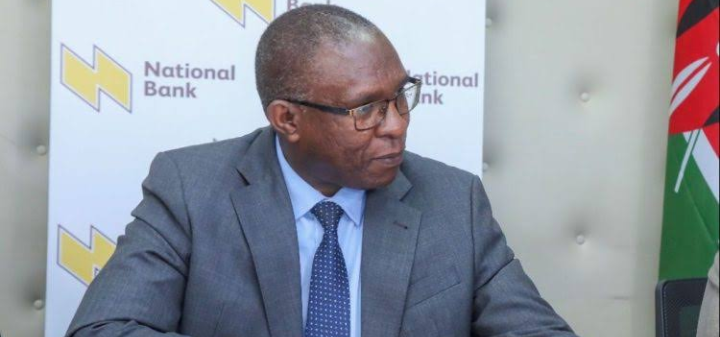The National Bank of Kenya (NBK) has taken a firm stance in defending its Sh1.9 billion loan to Jabavu Village Limited (JVL), even as criticism mounts over the financing and its implications.
This loan, intended for the development of affordable housing units at Jeevanjee Estate in Ngara, Nairobi, has drawn concerns amid questions about public land being potentially transferred to private interests.
In its submission to the Nairobi County Assembly Planning Committee, NBK emphasized that it adhered to “due diligence” and met all regulatory standards when issuing the loan.
George Odhiambo, NBK’s Managing Director, expressed confidence in the security backing the loan, which included a title deed for the Jeevanjee Estate property, spanning roughly 8.9 acres.
According to Odhiambo, the bank’s comprehensive credit evaluation thoroughly assessed the project’s feasibility, JVL’s financial capacity for repayment, and other essential metrics before approving the funding.
NBK confirmed that the title deed was used as collateral for the loan, which received formal approval on December 23, 2022, and has led to Sh505 million disbursement to date, with the latest installment issued on March 15, 2024.
Despite the bank’s assurances, the transaction has raised alarms in Nairobi’s county government circles.
The initial structure of the project’s Special Purpose Vehicle (SPV), Nairobi Bachelors Jeevanjee Estate Limited, gave the county government a controlling 99 percent share in the property.
However, recent adjustments shifted the SPV’s ownership to 80 percent in favor of JVL, leaving the county with a mere 20 percent stake.
This change has sparked concerns among Nairobi County Assembly members, who argue that public assets may be at risk of privatization for the benefit of select developers.
Leading voices in the County Assembly, including Minority Leader Anthony Kiragu and Deputy Minority Leader Waithera Chege, have been vocal in questioning the shareholding changes.
They allege that officials from both past and present county administrations facilitated the SPV’s restructuring, effectively reducing public control over the Jeevanjee property and opening a pathway for private gain.
These allegations of county officials enabling a transfer of public assets to private developers have amplified suspicions of irregularities in the handling of Nairobi’s public resources.
Assembly Planning Committee Chair Alvin Olando Palapala conveyed the committee’s determination to thoroughly investigate these developments.
Stressing that Nairobi’s public properties are not for sale, Palapala pledged to scrutinize the matter to ensure transparency and accountability.
He also assured residents that the county would not tolerate unauthorized privatization moves that compromise public interests.
This inquiry, set to extend through the week, aims to clarify NBK’s involvement, examine the legality of the loan transaction, and investigate the process through which the property’s shareholding was altered.
NBK executives have agreed to fully cooperate with the inquiry, but Jabavu Village Limited’s representatives have yet to respond or appear before the committee.
The Planning Committee is particularly focused on two individuals allegedly implicated in the property transfer Stephen Njoroge and Chief Land Registrar David Nyandoro.
Despite their involvement in the controversy, both officials remain in their respective positions under court orders, sparking additional concerns about potential interference with the investigation.
The Jeevanjee Estate project’s circumstances reflect growing tensions over land and resource management in Nairobi, where questions of transparency and public accountability are ever more pressing.
As the county assembly’s investigation emerges, it may provide clearer insights into whether public resources are being improperly reallocated and what corrective steps are necessary to safeguard Nairobi’s public assets from similar risks in the future.
The outcome of the investigation could carry big implications for both the future of affordable housing projects in Nairobi and the security of public land in a city grappling with rapid urban expansion.





















Add Comment